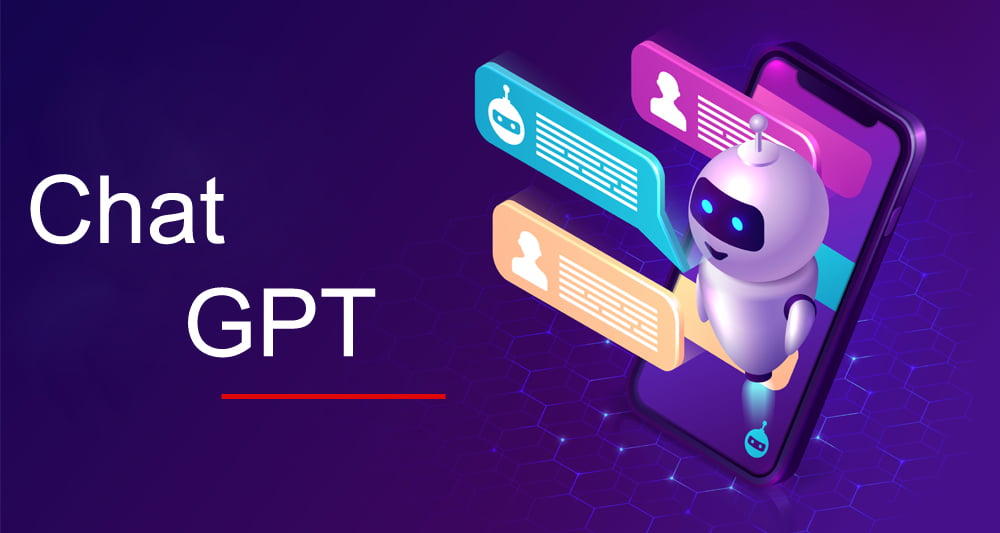What is ChatGPT
ChatGPT is a large language model created by OpenAI, designed to generate natural language responses to text-based prompts or questions. It is based on the Generative Pretrained Transformer (GPT) architecture, which uses deep learning techniques to learn patterns and relationships in vast amounts of text data. ChatGPT has been trained on a diverse range of texts, including books, websites, and social media, allowing it to understand a wide range of topics and writing styles. ChatGPT can be used for a variety of tasks, such as generating creative writing, answering questions, or providing customer support.
How to use ChatGPT
To use ChatGPT, simply start by typing your question or statement in the chat box and press “Enter” or “Send”. ChatGPT will then analyze your input and generate a response based on its knowledge and training.
Here are some tips for interacting with ChatGPT :
- Be clear and concise in your input. Avoid using complex language or long sentences that may confuse the AI.
- Ask specific questions or make clear statements. For example, instead of asking “Can you tell me about science?”, try asking “What are some of the major branches of science?”.
- If you need clarification or more information, feel free to ask follow-up questions. ChatGPT will try its best to understand and respond appropriately.
- Remember that ChatGPT is an AI language model and may not always have the ability to provide accurate or complete information. Use your judgement and verify information with other sources as necessary.
- Be polite and respectful in your interactions. ChatGPT is designed to provide helpful and informative responses, and treating it with respect can improve the quality of your experience.
Can we use ChatGPT for free
As an AI language model, ChatGPT does not charge any fees for general usage. You can interact with ChatGPT for free as much as you want, within the limits of ChatGPT’s capabilities.
However, some applications or platforms that use ChatGPT technology may charge for their services, or may have restrictions on usage. It’s best to check with the specific provider to understand any costs or limitations that may apply.
Yes, you can use ChatGPT for free. ChatGPT is a language model created by OpenAI, and ChatGPT’s primary purpose is to assist and communicate with users like you. You can interact with ChatGPT here on this platform, or on other platforms that use ChatGPT technology, without any cost or fee.
However, please note that while ChatGPT responses are generated automatically based on patterns in large amounts of data, they may not always be accurate or complete. ChatGPT is not a substitute for professional advice or human expertise.
How to open OpenAI account
To create an OpenAI account, please follow these steps:
- Go to the OpenAI website at https://openai.com/.
- Click on the “Sign up” button located in the upper right-hand corner of the screen.
- Enter your email address and create a password. You can also sign up using your Google account.
- Click on the “Create Account” button.
- You will receive an email with a verification link. Click on the link to verify your email address.
- Once you have verified your email address, you can log in to your OpenAI account and start using the platform.
Note that some OpenAI services may require additional steps, such as setting up payment information or agreeing to terms and conditions, before you can access them.
Can ChatGPT work as a Content Writer?
Yes, ChatGPT can be used for content writing. As a language model, ChatGPT has been trained on a vast amount of data and has learned to generate coherent and contextually relevant text in response to a given prompt or query. This makes it a useful tool for generating content on a wide range of topics.
However, it’s important to note that ChatGPT is an AI language model, not a human writer. While it can produce high-quality content, it may not always capture the nuances and subtleties of language that a skilled human writer could. Additionally, ChatGPT’s output should always be carefully reviewed and edited to ensure accuracy and readability.
Overall, ChatGPT can be a useful tool for content writing, but it should be used as part of a larger writing and editing process that involves human input and oversight.
Will ChatGPT be able to end Google’s Monopoly?
As an AI language model, ChatGPT don’t have the capability to directly impact or change the market dynamics or competition in the technology industry. However, ChatGPT can help provide information and insights that could potentially contribute to a more competitive environment.
Google’s dominance in the search engine market is the result of many factors, including their powerful algorithms, vast resources, and strong brand recognition. It would be challenging for any single entity, including ChatGPT, to completely end Google’s monopoly.
That being said, there are other search engines and digital assistants that are competing with Google, such as Bing, DuckDuckGo, and Siri. In addition, there are efforts by governments and regulatory bodies around the world to promote competition and prevent monopolies in the tech industry.
Ultimately, the technology industry is constantly evolving and changing, and it’s difficult to predict what the future will hold. While it’s unlikely that any single entity will be able to end Google’s monopoly, it’s possible that continued innovation and competition could lead to a more diverse and competitive marketplace.
Advantages :
As an AI language model, ChatGPT has several advantages:
- Access to vast amounts of information: ChatGPT has been trained on a massive dataset of text, including books, articles, and websites. This allows it to have access to a vast amount of knowledge and information.
- Ability to quickly process and analyze information: ChatGPT can analyze large amounts of data quickly and efficiently, making it ideal for tasks that require processing large volumes of information.
- 24/7 availability: ChatGPT can be accessed at any time, making it available to users around the clock. This is particularly useful for businesses that operate across different time zones or for individuals who need assistance outside of regular business hours.
- Consistency: Unlike human customer service representatives who may have varying levels of expertise or experience, ChatGPT is consistent in its responses and can provide accurate information every time.
- Multilingual capabilities: ChatGPT has the ability to communicate in multiple languages, which is useful for individuals and businesses that operate globally.
- Scalability: ChatGPT can handle a high volume of requests simultaneously, making it an ideal solution for businesses or organizations that need to respond to a large number of inquiries quickly.
- Overall, ChatGPT’s ability to quickly process and analyze vast amounts of information and provide consistent and accurate responses makes it a valuable tool for businesses and individuals.
Disadvantages
As an AI language model, there are some disadvantages or limitations that ChatGPT currently faces. Here are a few:
- Lack of Emotional Intelligence: Although ChatGPT has the ability to understand and respond to text-based queries, it lacks emotional intelligence. It cannot detect the emotional state of the user, which may lead to inappropriate or insensitive responses in some cases.
- Limited Contextual Understanding: While ChatGPT can understand the meaning of words and phrases, it may struggle with understanding the context in which they are being used. This can lead to confusion and inaccurate responses.
- Dependence on Training Data: ChatGPT is trained on a large dataset of text-based inputs and outputs. Its responses are based on this training data, which may contain biases or inaccuracies that can affect its performance.
- Inability to Handle Complex Tasks: ChatGPT is designed to handle a wide range of tasks, but it may struggle with complex or multi-step tasks that require a deep understanding of a particular domain.
- Lack of Personalization: Since ChatGPT does not have the ability to remember past conversations with a specific user, it cannot personalize its responses based on the user’s history or preferences.
-
Inability to Process Visual or Audio Inputs: ChatGPT can only process and respond to text-based inputs. It cannot understand or respond to visual or audio inputs, which limits its ability to provide comprehensive assistance in certain domains, such as image or audio recognition.





















+ There are no comments
Add yours